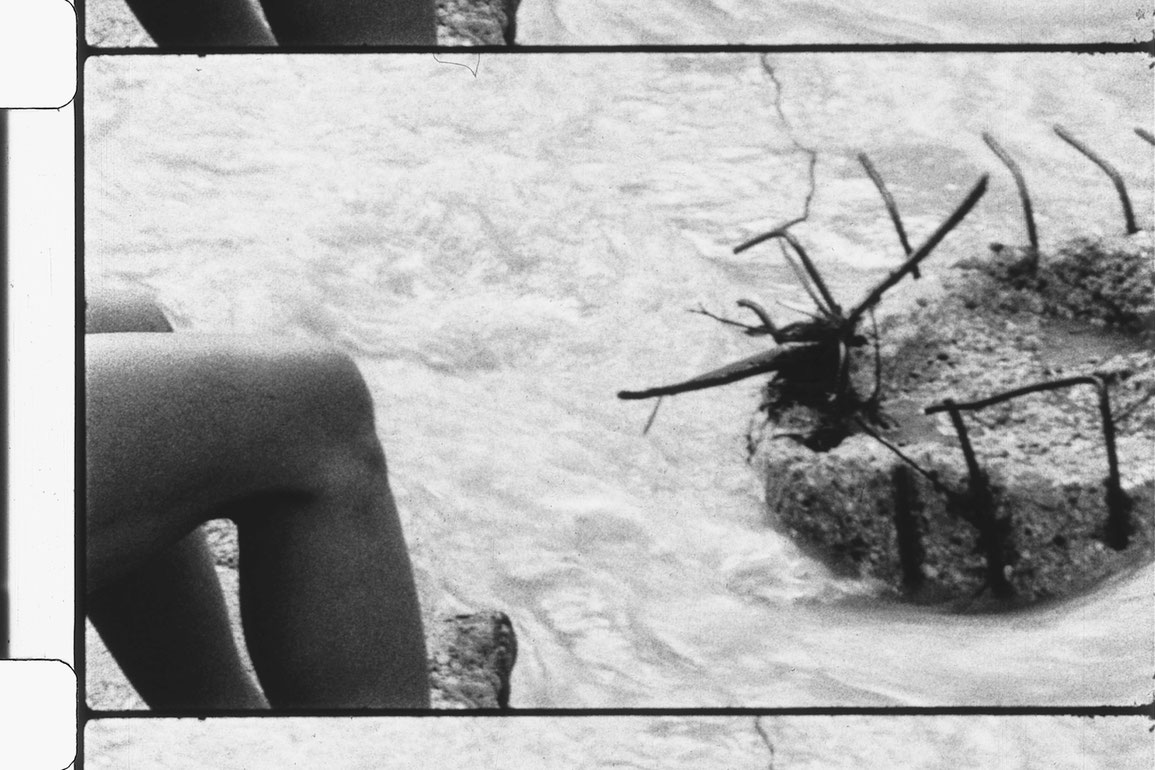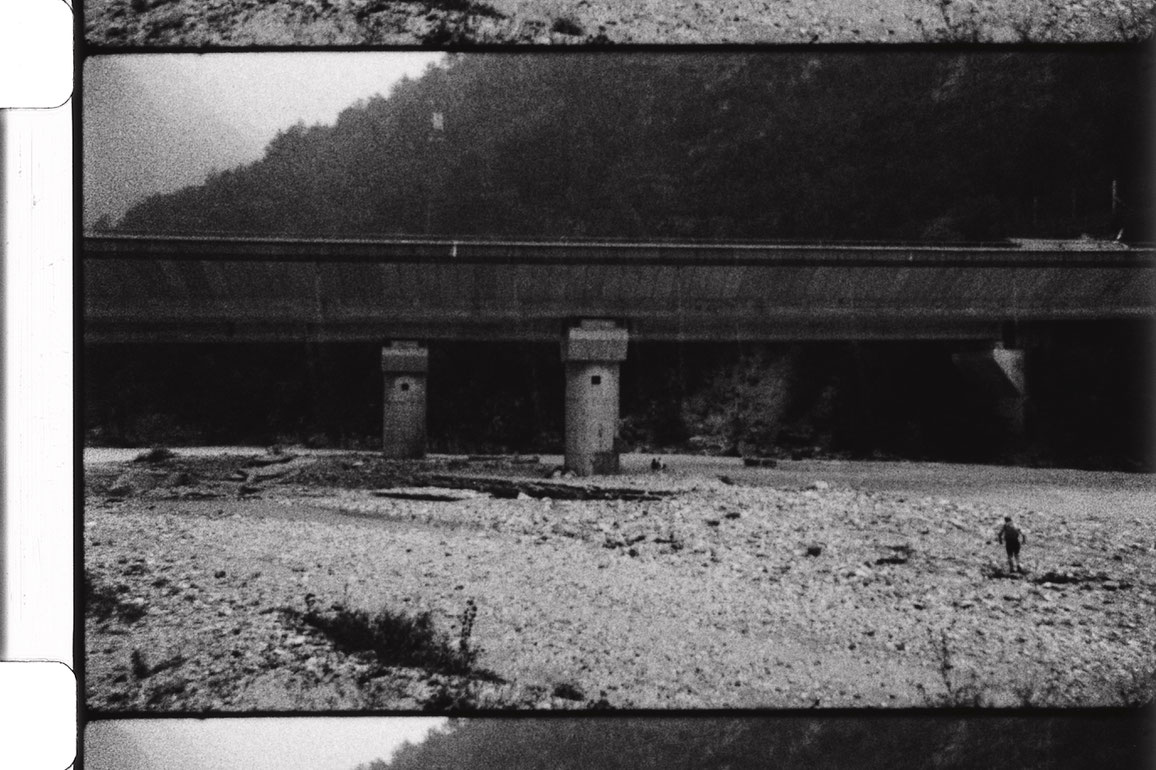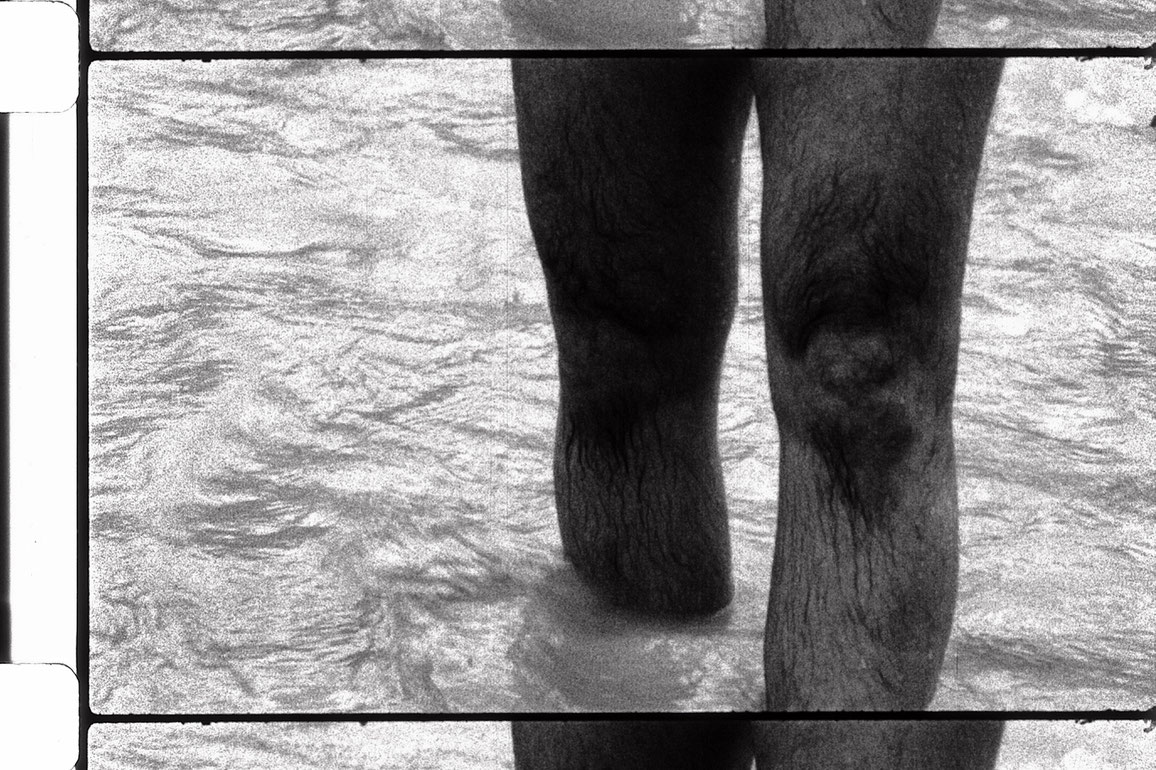River Plate
Contrary to what the title of the film suggests, River Plate is not set in the stadium of the eponymous Argentinian soccer club, but instead, along the gravel banks of a flowing river bed in northern Italy, where a group of swimmers has gathered on a hot summer day. Nonetheless, references to sports also play a role time and again in Josef Dabernig´s latest film. The first shot, which is in black-and-white, shows a pair of hairy men’s legs washed by the river’s water; in the camera’s strict frame, the one leg slightly bent and other stretched out straight create a figure that is equally shapely and fragmentarily isolated. This is followed by a hard cut to a group of houses in a village, which similar to the swimmers, seems to embody a temporarily-gathered community and despite gestures of physical closeness, exudes an emotional lethargy. After the narratively arranged Herna (2010) and Hypercrisis (2011), this conceptual “body film” unfolds its form nearly sculpturally from the material and underlying structure: pelvis, stomach, shoulder (pan), leg, knee, arm—Dabernig interrupts the serial units from each of six takes with the same number of fragmentary takes of the close-by highway bridge. The interplay of subject, technology, and nature remains piecemeal in the midst of a hyper-expressive landscape whose abundant tension echoes in the visual aesthetics of black-and-white material and sound concept—a mixture of highway sounds and mountain stream. Like in earlier films, here, too, are references to earlier works in addition to the relations within the film. In this way, familiar protagonists and sites surface, as do the screenplay as reading material and a River Plate jersey as soccer reference. At the end of the first half of the film, a change occurs, the characters lose their anonymity and the faces of those involved become visible before a rainstorm begins and the day in the film takes an unexpected turn.
(Rike Frank)
Translation: Lisa Rosenblatt
River Plate displays a micro society in a fragmented body-narration. Knees, shoulders, feet and bellies are signifiers of articulated human presence, revealing nothing, against a claustrophobic background of cement, stone and water.
(Catalog of the Museum of Contemporary Art in Krakow)
60. Kurzfilmtage Oberhausen (Award)
Begründung der Jury:
Körper und Landschaft, Haut und Beton. Die zentralen Motive des Films kontrastieren in brilliant komponierten Schwarzweißbildern. Der Regisseur zeichnet ein konzentriertes Portrait von Menschen, die sich die Landschaft aneignen – ungeachtet ihrer Unwirtlichkeit. Stoisch sitzen sie da, streichen über ihre Bäuche und trotzen Stein und Regen. Volkstümliches Vergnügen als Metapher für den Zustand der Welt; die Jury des Landes Nordrhein-Westfalen zeichnet River Plate von Josef Dabernig aus als präzises Psychogramm des modernen Menschen.
Mitglieder der Jury:
Oliver Baumgarten (Cologne), Georg Elben (Marl), Ruth Schiffer (Düsseldorf), Ulrike Sprenger (Konstanz), Mareike Wegener (Cologne)
River Plate
2013
Austria
16 min



